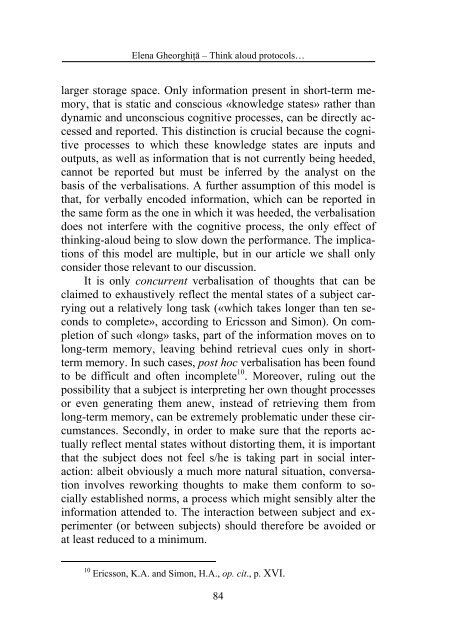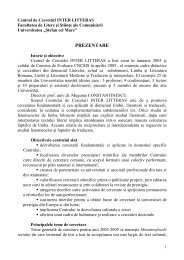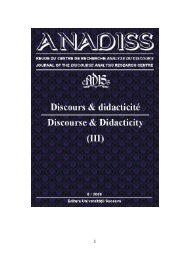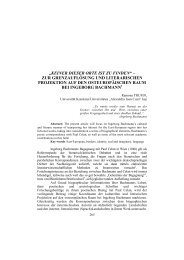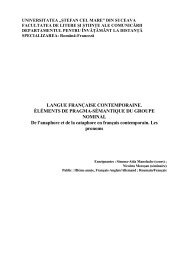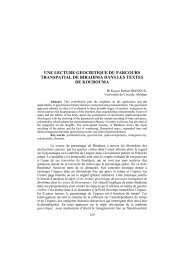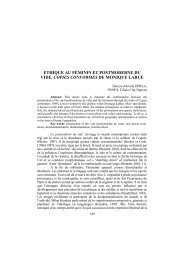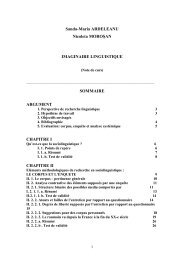Le discours de la francophonie
Le discours de la francophonie
Le discours de la francophonie
You also want an ePaper? Increase the reach of your titles
YUMPU automatically turns print PDFs into web optimized ePapers that Google loves.
Elena Gheorghiţă – Think aloud protocols…<strong>la</strong>rger storage space. Only information present in short-term memory,that is static and conscious «knowledge states» rather thandynamic and unconscious cognitive processes, can be directly accessedand reported. This distinction is crucial because the cognitiveprocesses to which these knowledge states are inputs andoutputs, as well as information that is not currently being hee<strong>de</strong>d,cannot be reported but must be inferred by the analyst on thebasis of the verbalisations. A further assumption of this mo<strong>de</strong>l isthat, for verbally enco<strong>de</strong>d information, which can be reported inthe same form as the one in which it was hee<strong>de</strong>d, the verbalisationdoes not interfere with the cognitive process, the only effect ofthinking-aloud being to slow down the performance. The implicationsof this mo<strong>de</strong>l are multiple, but in our article we shall onlyconsi<strong>de</strong>r those relevant to our discussion.It is only concurrent verbalisation of thoughts that can bec<strong>la</strong>imed to exhaustively reflect the mental states of a subject carryingout a re<strong>la</strong>tively long task («which takes longer than ten secondsto complete», according to Ericsson and Simon). On completionof such «long» tasks, part of the information moves on tolong-term memory, leaving behind retrieval cues only in shorttermmemory. In such cases, post hoc verbalisation has been foundto be difficult and often incomplete 10 . Moreover, ruling out thepossibility that a subject is interpreting her own thought processesor even generating them anew, instead of retrieving them fromlong-term memory, can be extremely problematic un<strong>de</strong>r these circumstances.Secondly, in or<strong>de</strong>r to make sure that the reports actuallyreflect mental states without distorting them, it is importantthat the subject does not feel s/he is taking part in social interaction:albeit obviously a much more natural situation, conversationinvolves reworking thoughts to make them conform to sociallyestablished norms, a process which might sensibly alter theinformation atten<strong>de</strong>d to. The interaction between subject and experimenter(or between subjects) should therefore be avoi<strong>de</strong>d orat least reduced to a minimum.10 Ericsson, K.A. and Simon, H.A., op. cit., p. XVI.84


